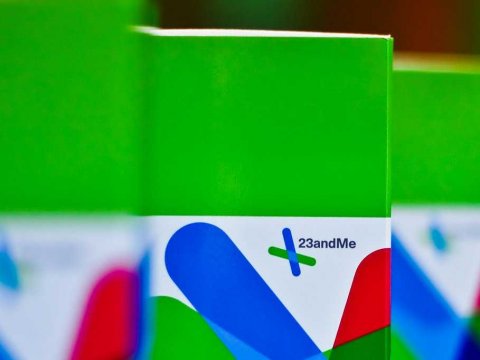Since its inception, 23andMe has set up two different lines of business: one is to sell its genetic services to individual consumers, and the other is to aggregate consumer genetic data for sales to pharmaceutical or biotech companies. From the beginning, 23andMe's "two-headed money" approach has caused industry concerns, but from the recent review, 23andMe seems to have entered a virtuous circle.
After decades of research, researchers at Pfizer and Massachusetts General Hospital (MGH) revealed that they had identified several genetic markers associated with depression earlier this month. This is the largest of its kind, with a total of more than 120,000 people using genetic data.
A paper published in February this year demonstrated that genes play a decisive role in whether a person is a night owl or a morning lover. In another paper published in April, the role of genes was explored in the resilience of Mendel's genetic disease.
The above research, all of which comes from a company called 23andMe, which has a Google background, is a direct-to-consumer genetic research company that makes money by genetic analysis for consumers. In 2013, 23andMe began to enter the public eye because of the personal genetic analysis business stopped by the US Food and Drug Administration (FDA). After two years of rectification, they restarted their business and quietly collected genetic data of more than one million people using various means.
For as little as $199, everyone can perform genetic analysis and receive a genetic report of their own. After the user's consent, the user's genes will be stored in the gene database for use by researchers. 23andMe claims that approximately 80% of users agree to the above behavior.

23andMe's current technical team lacks old professors who have published papers in top journals, so they chose to work with top universities to open the database to the university's research lab. Researchers not only get a detailed genetic report, but also Can get the "phenotype" report (ie appearance, weight and other signs) that users fill out online. This is an invaluable treasure for researchers.
23andMe is one of the more and more research-friendly business companies, although they may be the only one in the genetic research industry. Large academic hospitals like Stanford University Hospital and Duke University Hospital are currently using ResearchKit from Apple to extract information collected via the iPhone. And the famous wearable device manufacturer Fitbit is also working in this area: the user walking information and heart rate collected by smart bracelets and smart watches are being widely used in health research.
Kids Lollipop,Kids Lollipops,Kids Gourmet Lollipops,Kids Gourmet Lollipop
Soar Biotech Co.,Ltd , https://www.xylitgum.com